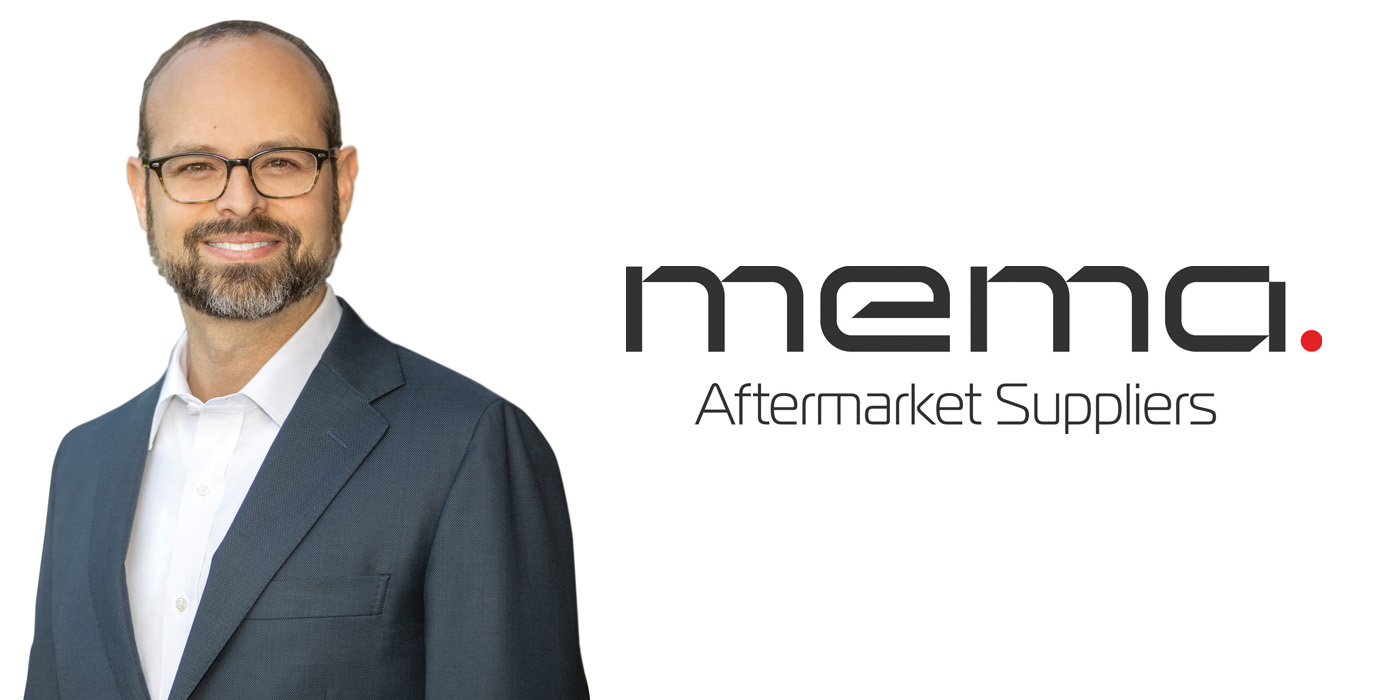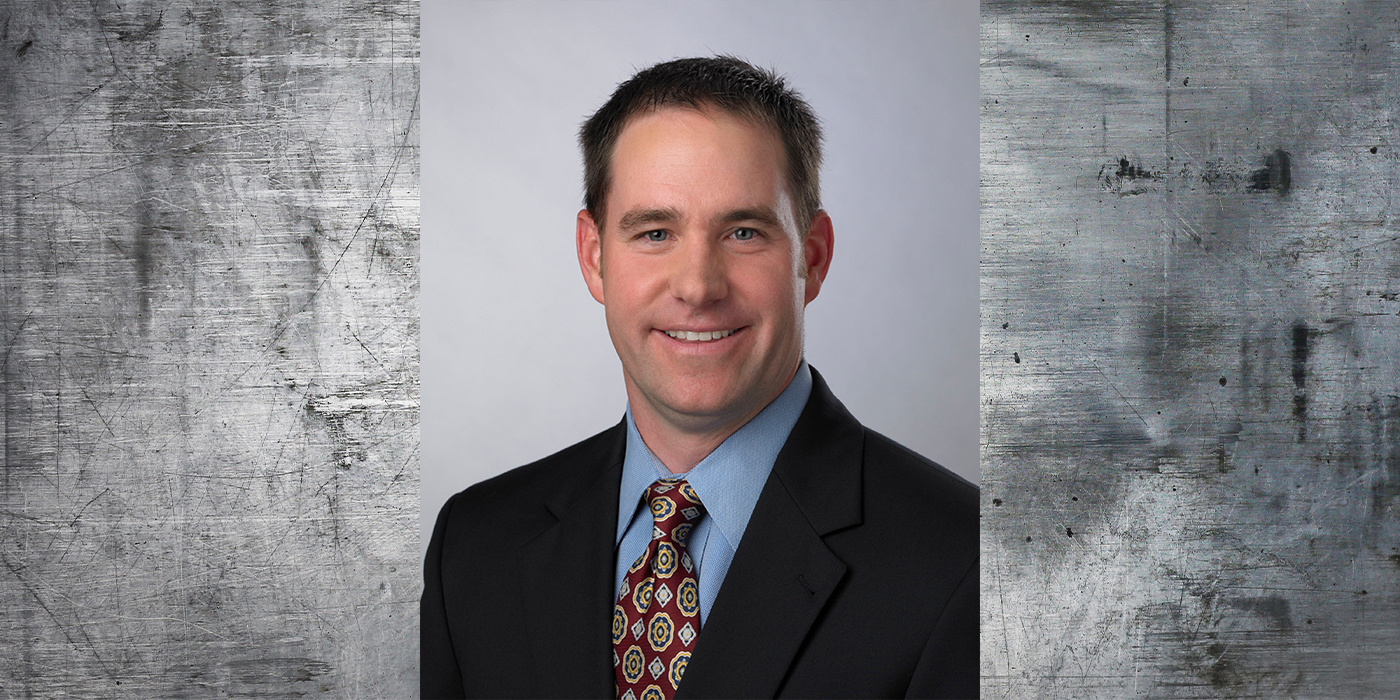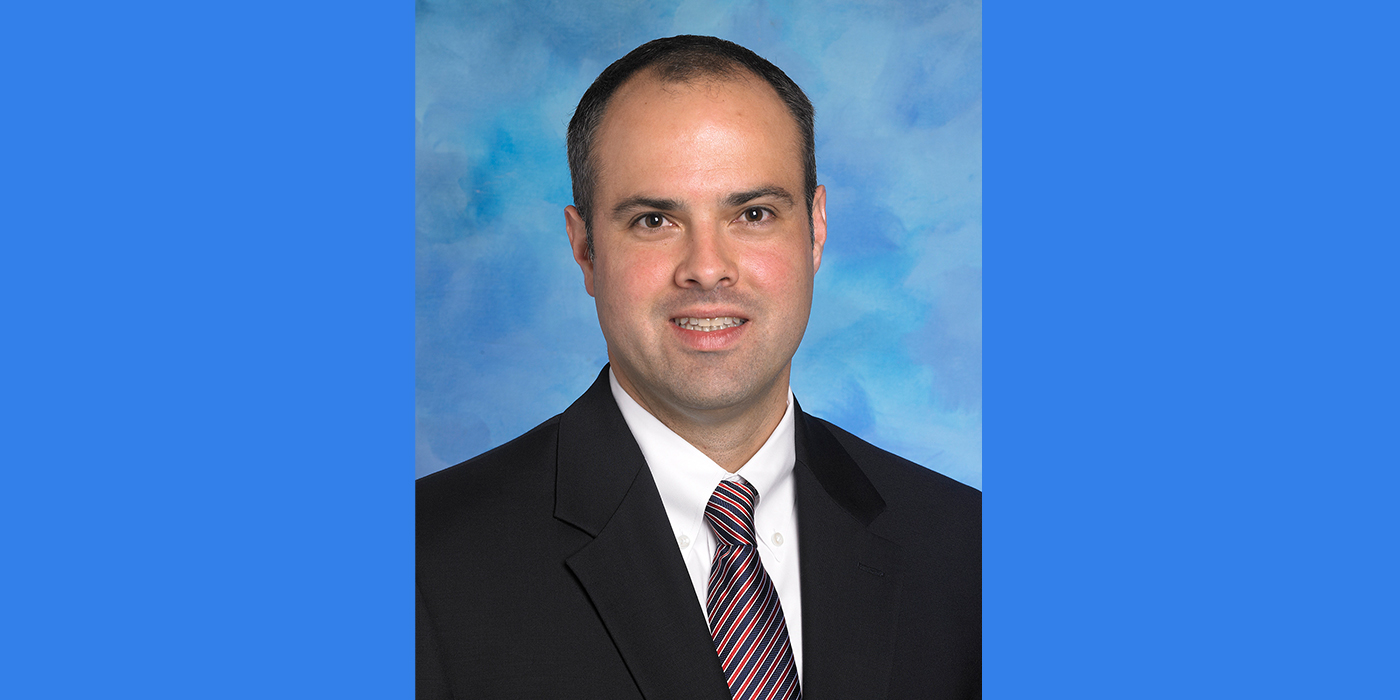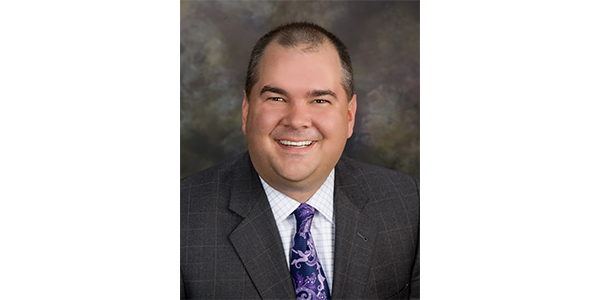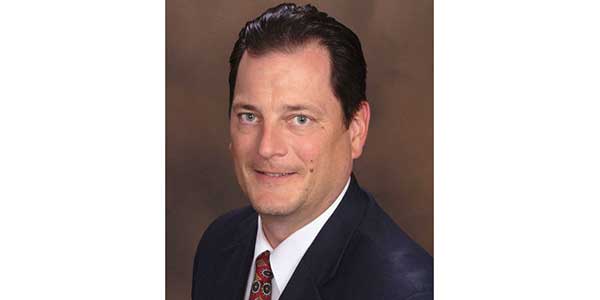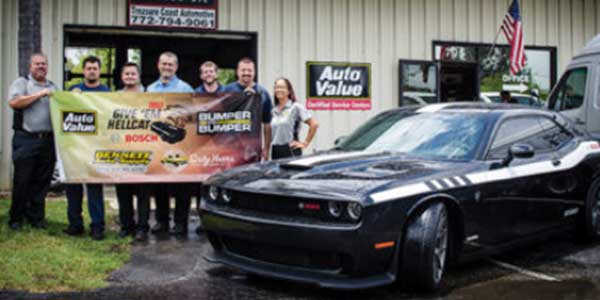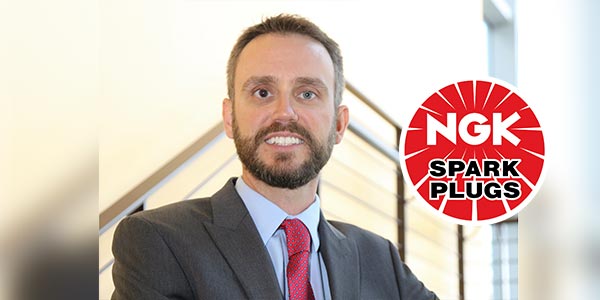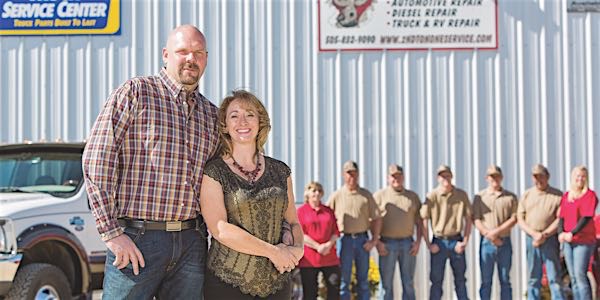In this edition of Outsider Interview, Shop Owner talks to Jim Ruggles, Sr. of Eddy’s Bike Shop to provide a fresh perspective for your own business. Eddy’s Bike Shop in Stow, OH, has been in business for more than 70 years and has grown to four locations in Northeast Ohio. At the height of the season, Ruggles’ business employs 80 people.
Jim is the second generation of his family to run the business and his son, Jim Ruggles, Jr. is currently working as the general manager.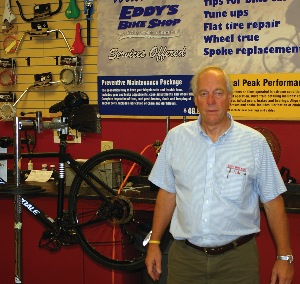
While bicycles and cars represent two distinct modes of transportation, automotive repair shops and bicycle shops share a lot of the same challenges and competition. Just like $99 brake jobs and $9.99 oil changes, bicycle shops face similar challenges in the form of cheap bicycles from mass merchandisers like Walmart and Target. But, independent bike shops have found a way to thrive.
In 2009, according to the National Bicycle Dealers Association, 73% of bicycle units were sold through mass merchants, but this represented only 32% of the dollars in the channel. The majority of those dollars were claimed by more than 4,200 independent bicycle dealers, even though they sold only 18% of the bikes (9% of the bikes were sold by other sources like the internet and sporting goods stores). Independent bike shops garner higher profit margins by offering higher quality merchandise, expert repair and customer service.
Eddy’s Bike Shop is great example of how a small business can take on big-box chains by offering superior customer service and high-quality products.
What is the history of Eddy’s?
Eddy’s started as Eddy’s Central Market in 1936, and founder Eddy Ruggles changed it to a general store in the 1940s. As a kid, I can remember loading 100-lb. bags of coal, and selling stoves, pottery and anything, including bicycles, to make a living. The general store eventually grew into a grocery store and meat market. I am even trained as a butcher.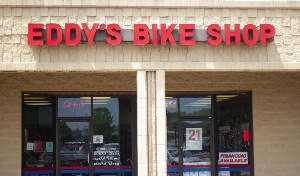
During the early 1960s, grocery stores started to evolve and grow into the large chains we know today, and it forced out the little guy. At that time, customers chose selection over service. The store stayed open for a while and the business evolved to selling only bicycles and accessories.
How did the large grocery store chains change customer service?
Grocery stores evolved from the grocer waiting on customers to customers waiting on themselves. This also happened at gas stations, where, at one time, the attendant would come out and pump the gas and clean the windshield. The self-service format was a great idea at the time because it reduced labor costs for the businesses.
Now, the tables have turned. The Walmarts of the world lack the resources and flexibility to take the extra steps to make a customer happy. Bicycles require special attention like proper assembly, fitment and periodic adjustments so customers can get the most out of their purchase. Walmart, or any other mass merchandiser, cannot do this. You can’t even test-ride the bikes before you buy them.
So the big-box stores have set the bar very low. How has that changed your customer base?
You just cannot make some customers happy – like the typical Walmart customer. There is no way you are going to be able to capture the Walmart customer for an initial or additional sale. They are fixated on price and they never consider product quality and service.
You can’t pick and choose your customers; your customers pick and choose you. Your customers do this by deciding where they are going to spend their money. You just have to create the best environment and opportunity for them to spend their money.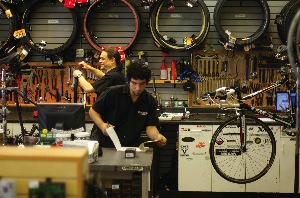
What has been the greatest advantage of having multiple locations?
Having more locations means a larger dollar base and more buying power. It also means better pricing and terms from my suppliers.
What has been the most difficult obstacle with multiple locations?
The toughest aspect of having multiple locations is employee management. You cannot govern employee behavior at the outer stores; this is where good managers come into play. We have company standards that dictate expectations and defines what behavior will not be tolerated. We have a controller who goes around to the four locations to make sure everything is run consistently.
What advice would you have for shops trying to open a second, third or fourth location?
We chose locations based on access to main freeways. You can’t live off just one neighborhood or town. Your shop must be accessible to multiple neighborhoods and towns.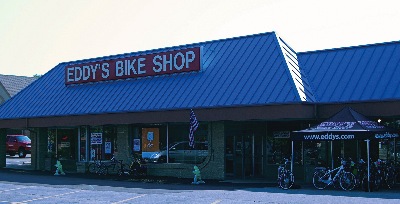
How is service handled?
We try to schedule appointments, but we also try to be flexible to accommodate special situations and customers. At our main store, we have a ‘hook in’ area for bicycles that need repair, and a ‘hook out’ area for bikes that have been repaired.
Training for our mechanics happens offline and some training is provided by the bicycle manufacturers. We also send our employees for local training, as it’s available. Training is also passed down by our more senior mechanics.
Any other advice?
I have learned that every employee is a mouthpiece for your business. If they are having a bad day, you need to get them away from the public for that day. If it becomes a habit, they need to be removed from the business.

